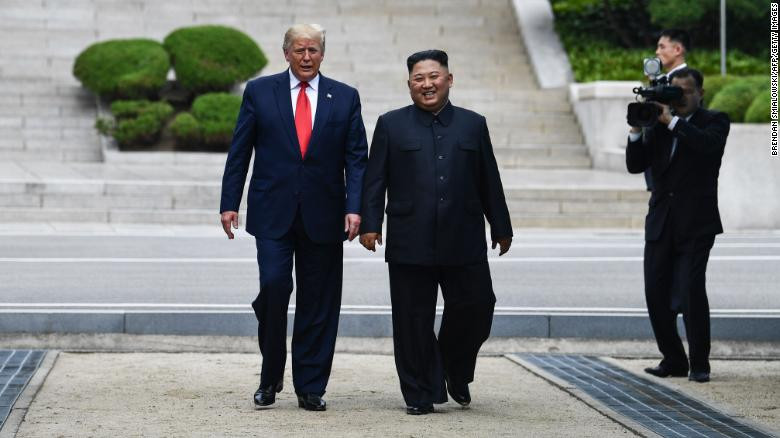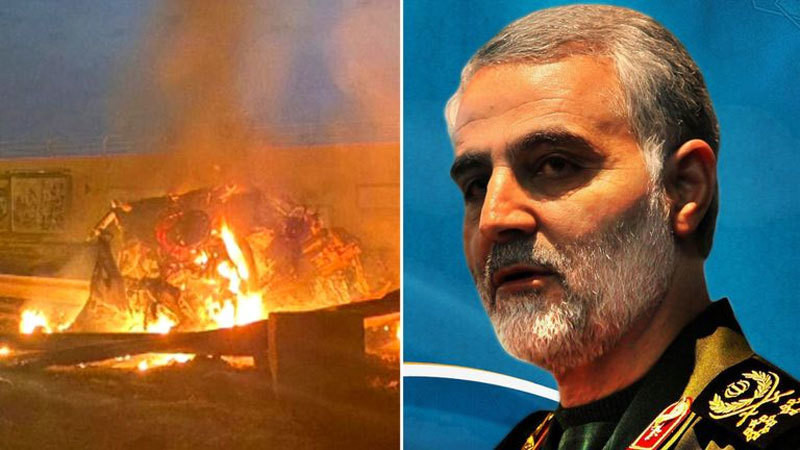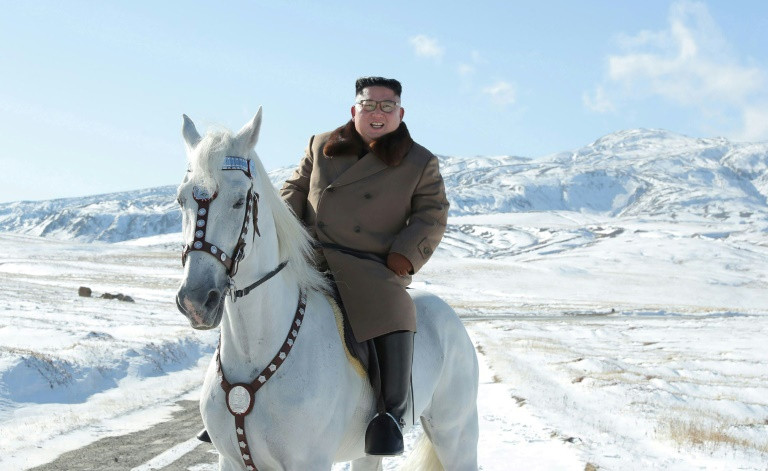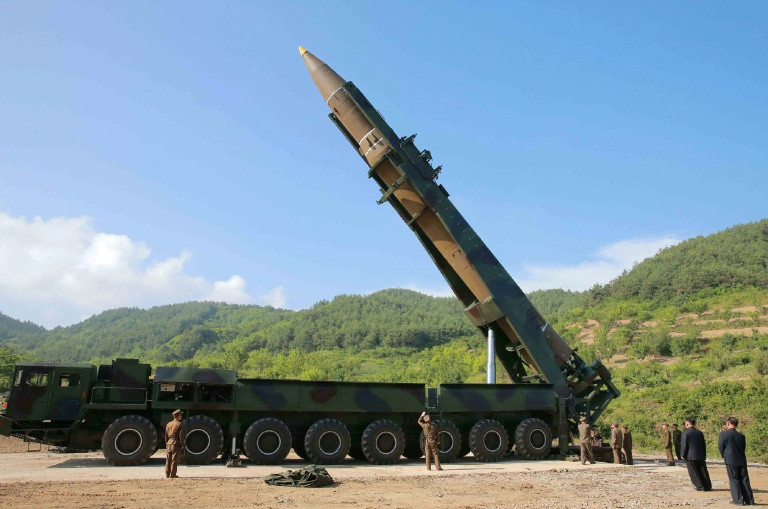Middle East Tensions: Looking at Iran, What Lessons Does North Korea Learn?
(Baonghean) - Both being on the US list of state sponsors of terrorism, both in a state of nuclear tension with the US... are common points between Iran and North Korea. After the death of an Iranian general in Washington's airstrike, will Pyongyang now learn anything in its relationship with the world's number 1 superpower?
Hidden message
The article on CNN recalled that, in the "hottest" days of 2017, when it seemed that North Korea and the United States were about to enter war, a debate arose in the halls of the White House. People wondered if the US military launched a few attacks on North Korea, would it be enough to scare leader Kim Jong-un and stop pursuing nuclear weapons and ballistic missiles?
At the time, North Korea’s answer, at least in its state media, was a resounding “no.” Pyongyang warned that it would respond to any military move against its sovereignty with force of its own. “The US imperialists will go to hell and the short history of the US will end forever the moment he destroys even a single blade of grass on this land,” read a commentary in North Korean state media in February 2018, just months before the first Kim-Trump meeting.
 |
| The two leaders Kim Jong-un and Donald Trump walked together at the DMZ dividing the two Koreas in June 2019. Photo: Getty |
It remains to be seen whether North Korea was serious about its claims. After all, US President Donald Trump never ordered an attack, largely thanks to the diplomatic efforts that led to his historic meeting with Kim Jong-un in Singapore in 2018.
But behind North Korea’s sometimes shocking threats lies an important message: Pyongyang is developing nuclear weapons and ballistic missiles capable of reaching the United States, so decision-makers in Washington will have to think twice about whether to launch a so-called lethal strike, or, for example, eliminate a general they view as a terrorist and an imminent threat.
Washington need not fear nuclear retaliation in the case of Iran. But with North Korea, the situation is different.
This is perhaps the lens through which North Korea views the Trump administration’s decision to kill Iranian commander Qasem Soleimani in a drone strike last weekend, an attack that analysts say has thrown the Middle East into crisis and added fuel to tensions between Tehran and Washington. Washington need not fear nuclear retaliation in the case of Iran. But with North Korea, the situation is different.
“North Korea is right next to Iran on the list of state sponsors of terrorism,” said Adam Mount of the Federation of American Scientists. “And the US administration is now justifying the assassination of Soleimani by calling him a terrorist.” Mount said Soleimani’s death would likely strengthen North Korea’s resolve to expand its nuclear capabilities, and if anything were to happen to its leadership, it would have a basis to threaten the other side with retaliation.
 |
| The US assassination of Soleimani will likely further strengthen North Korea's resolve to expand its nuclear capabilities. |
From “Axis of Evil” to “Fire and Fury”
When US President George W. Bush entered the Capitol building to deliver his State of the Union address after the 9/11 terrorist attacks, it was likely that almost no one on the Korean Peninsula knew that the Kim Jong-il regime was about to be included in the infamous “Axis of Evil.” The subsequent decision to group North Korea with Iran and Iraq, and the invasion and overthrow of Saddam Hussein, likely convinced the regime in Pyongyang that it needed nuclear weapons to ensure its survival.
Pyongyang has used leaders like Hussein and Libya’s Moammar Gadhafi as telling examples of why it needs nuclear weapons and why it is reluctant to give them up in negotiations. Gadhafi agreed to abandon his nuclear ambitions in exchange for sanctions relief in the 2000s. He was overthrown and killed by Washington-backed rebels just a few years later. “North Korea has now decided the United States cannot be trusted,” said Van Jackson, a former Obama administration official in the US Department of Defense. “They believe their nuclear weapons are the only thing that will make their fate different from Iraq or Libya.”
 |
| Mr. Kim Jong-un affirmed that North Korea is ready to live under sanctions to protect its nuclear capabilities. Photo: KCNA |
Diplomatic talks between Washington and Pyongyang following three Trump-Kim summits have failed to make any progress, partly because of a lack of trust.
Trump has long hoped that a top-down approach to nuclear negotiations could help him succeed where his predecessors failed. But diplomatic talks between Washington and Pyongyang following three Trump-Kim summits have made little headway, in part because of a lack of trust. Both sides have accused the other of being inflexible in their efforts to reach a deal that would see Pyongyang trade nuclear weapons and ballistic missiles for relief from sanctions that have squeezed the North Korean economy.
In his recent major New Year’s speech, leader Kim Jong-un asserted that his country “will never” give up its nuclear weapons if the US “persists in its hostile policy”. North Korean media quoted Mr. Kim: “The US has branded our country as its enemy, the “axis of evil” and the target of its “preemptive nuclear strike” and applied the most brutal and inhumane sanctions against us, posing a persistent nuclear threat for the past seven decades.”
In the current context, North Korea is only likely to abandon its nuclear weapons program if it has a trustworthy and stable relationship with the United States. The United States will only develop a normal relationship with North Korea, lift sanctions, and help Pyongyang develop its economy if the other side abandons its nuclear weapons program.
 |
| The US has imposed many sanctions on Pyongyang. Photo: KCNA |
But the US administration’s decision to assassinate Soleimani makes a slightly different picture. It shows that Trump’s threats are not always “empty talk,” and that this could give North Korea pause if it is considering any provocative action, such as testing a long-range ballistic missile or nuclear weapon.
In addition, recent developments could also make things more dangerous. If Kim believes that Trump will order a drone strike on North Korea, then, as experts predict, he may feel increased pressure to retain nuclear weapons. In short, there are still countless questions regarding the North Korean nuclear issue that we have yet to find answers to, and as long as that is the case, it is absolutely necessary that the parties involved do not make any foreign policy decisions that increase the risk of nuclear instability and create hot spots around the world.

